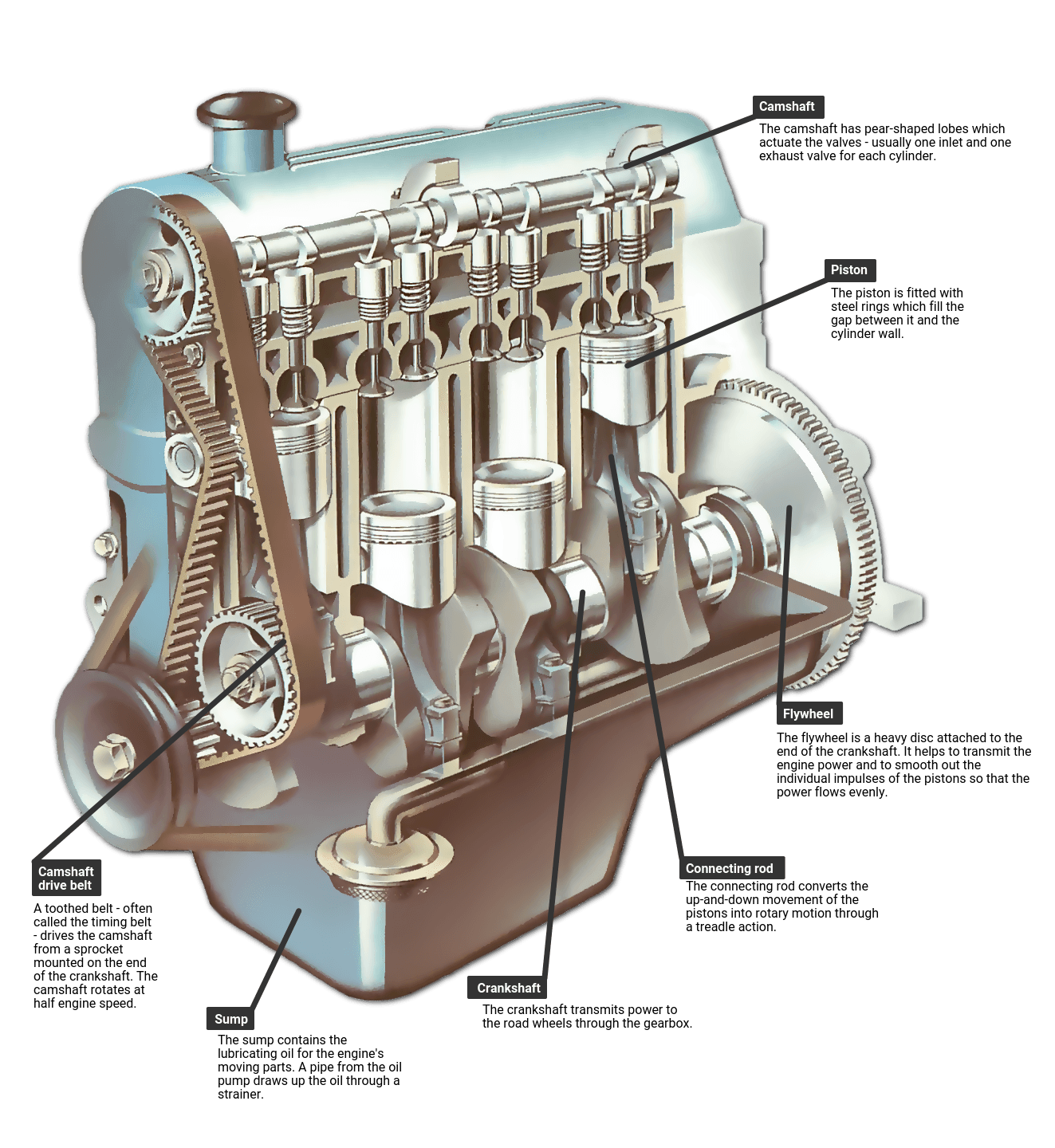Engines For Africa: Top Choice for Automotive Enthusiasts
Engines For Africa: Top Choice for Automotive Enthusiasts
Blog Article
A Total Overview to Selecting the Right Engine for Your Task
Selecting the ideal engine for your project is a critical decision that can dramatically impact its general success. It is vital to diligently define your job requires, review performance requirements, and think about user-friendliness along with various other important elements. Furthermore, recognizing the community support offered and inspecting price effects can further fine-tune your option. Each of these aspects plays a crucial duty in ensuring that your selected engine not only meets instant goals however likewise lines up with long-lasting goals. As we check out these considerations, you may locate that the subtleties of each facet disclose greater than originally prepared for.
Specify Your Task Requirements
Defining your task requires is an essential action in selecting the suitable engine for effective application. A comprehensive understanding of your task's objectives will certainly direct you in recognizing the abilities and attributes needed from an engine. Begin by outlining the range of your task, including the wanted functionality, target market, and the specific results you intend to achieve.
Following, consider the technical needs that line up with your project goals. This includes examining the compatibility of the engine with existing systems, along with the programs languages and frameworks that will certainly be utilized. Furthermore, analyze the level of scalability needed to suit future development or changes sought after.
Spending plan constraints likewise play an essential role in defining your job requires. Develop a clear economic structure to guide your decision-making process, making sure that the engine picked fits within your spending plan while providing the required performance.
Evaluate Efficiency Demands

Engines that sustain horizontal scaling are frequently more suitable for larger applications. In addition, review the engine's efficiency under different conditions, such as peak use situations, to ensure it meets your integrity criteria.
Think About Simplicity of Usage
While technological requirements are necessary, the convenience of use of an engine can considerably impact the growth process and overall task success. An instinctive interface, clear documentation, and structured workflows can significantly reduce the understanding curve for developers, allowing them to focus on creative thinking and analytic instead of facing linked here complicated devices.
When examining an engine's ease of usage, consider the onboarding experience. A well-structured intro, total with tutorials and example projects, can promote a smoother shift for brand-new users. In addition, the clearness and comprehensiveness of the engine's documents play a vital role; extensive overviews and API recommendations can encourage developers to repair and execute attributes efficiently.
An engine that permits for very easy alterations can be extra straightforward, as programmers can customize it to fit their details needs without considerable hassle. Ultimately, choosing an engine that prioritizes convenience of usage can lead to an extra delightful and effective advancement experience.
Assess Community and Assistance
The toughness of an engine's area and support network can greatly affect a designer's experience and success. When assessing an engine, take into consideration the size and task level of its area.
Furthermore, examine the availability of main support channels. Reliable documents, responsive client support, and routine updates are essential for attending to technical problems and maintaining your job on course. my site Engines For Africa. Active areas also promote collaboration, supplying opportunities for networking and responses, which can be important, specifically for independent developers or small groups
Additionally, check out the visibility of community-run occasions, such as meetups or hackathons. These events can improve your understanding of the engine while attaching you with possible partners and seasoned users. In summary, a robust community and support system not only enhance growth yet additionally develop an environment for learning and development, eventually improving the probability of your task's success.
Contrast Price and Licensing Alternatives
Budget factors to consider play an important function in selecting the appropriate engine for your project, as the cost and licensing options can considerably impact both short-term expenses and long-term stability. Engines For Africa. Various engines supply differing prices structures, which can include one-time acquisition charges, membership designs, or revenue-sharing contracts based on your project's earnings

Licensing options additionally differ substantially. Some engines are open-source, using versatility and community-driven support, while others may need proprietary licenses that restrict use and circulation. Understanding the implications of each licensing version is crucial, as it affects possession legal rights, future scalability, and prospective lawful commitments.
Final Thought
Finally, picking the proper engine for a project demands a thorough analysis of defined project demands, performance needs, simplicity of usage, neighborhood support, and expense considerations. By systematically resolving these vital factors, decision-makers can make certain positioning with both current and future project demands. An educated option ultimately boosts the possibility of job success, enabling efficient source allotment and taking full advantage of potential results within the defined budgetary restrictions.
Picking the appropriate engine for your job is a critical decision that can dramatically impact its general success.Specifying your job requires is an essential action in picking the appropriate engine for successful execution. A comprehensive understanding of your task's objectives will assist you in recognizing the features and capabilities called for from an engine.As soon as you have a clear understanding of your project needs, the next step is to examine the efficiency needs of the engine.In conclusion, selecting the suitable engine for a job requires a thorough assessment of specified task demands, efficiency needs, convenience of usage, community assistance, and price considerations.
Report this page